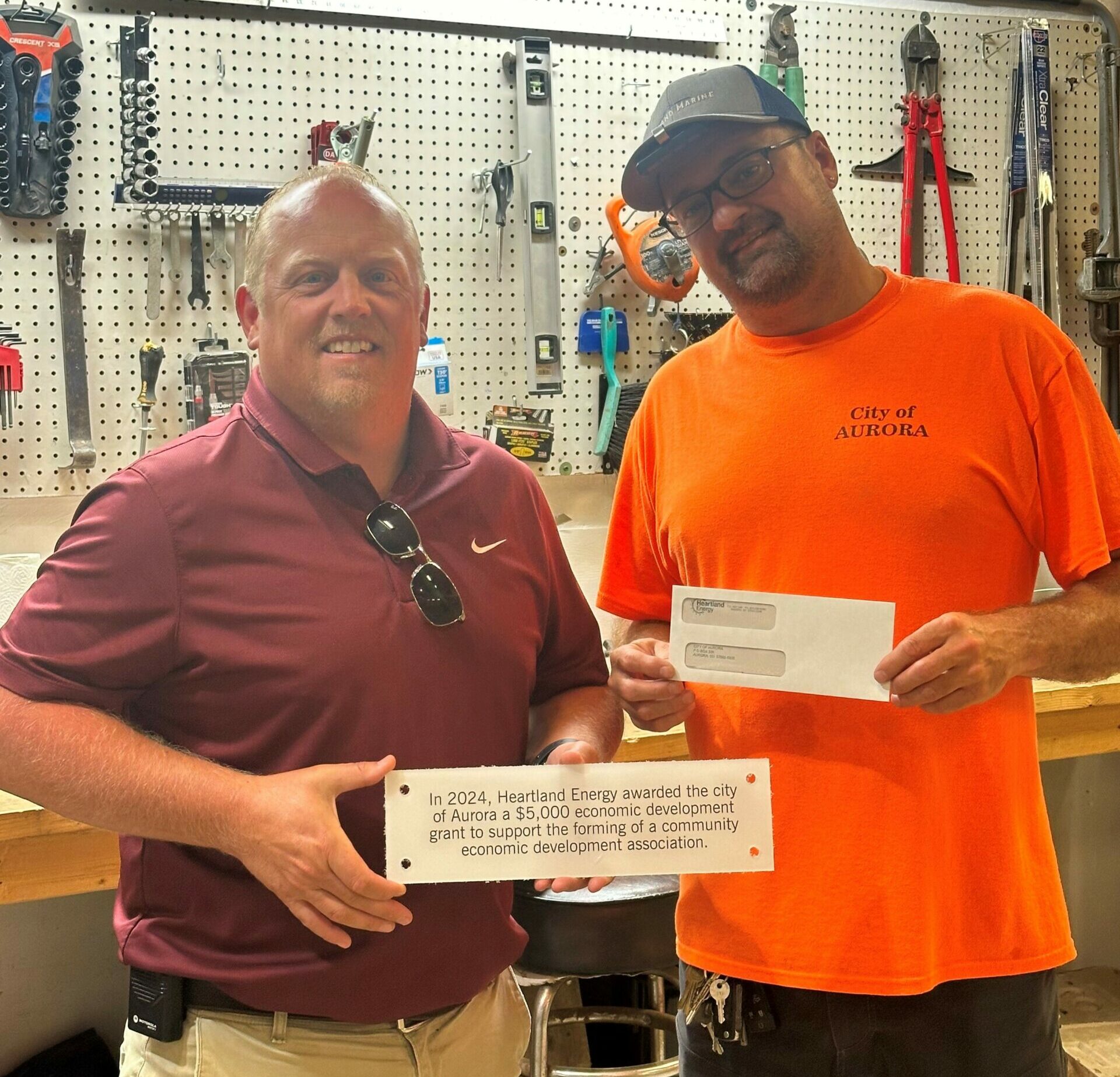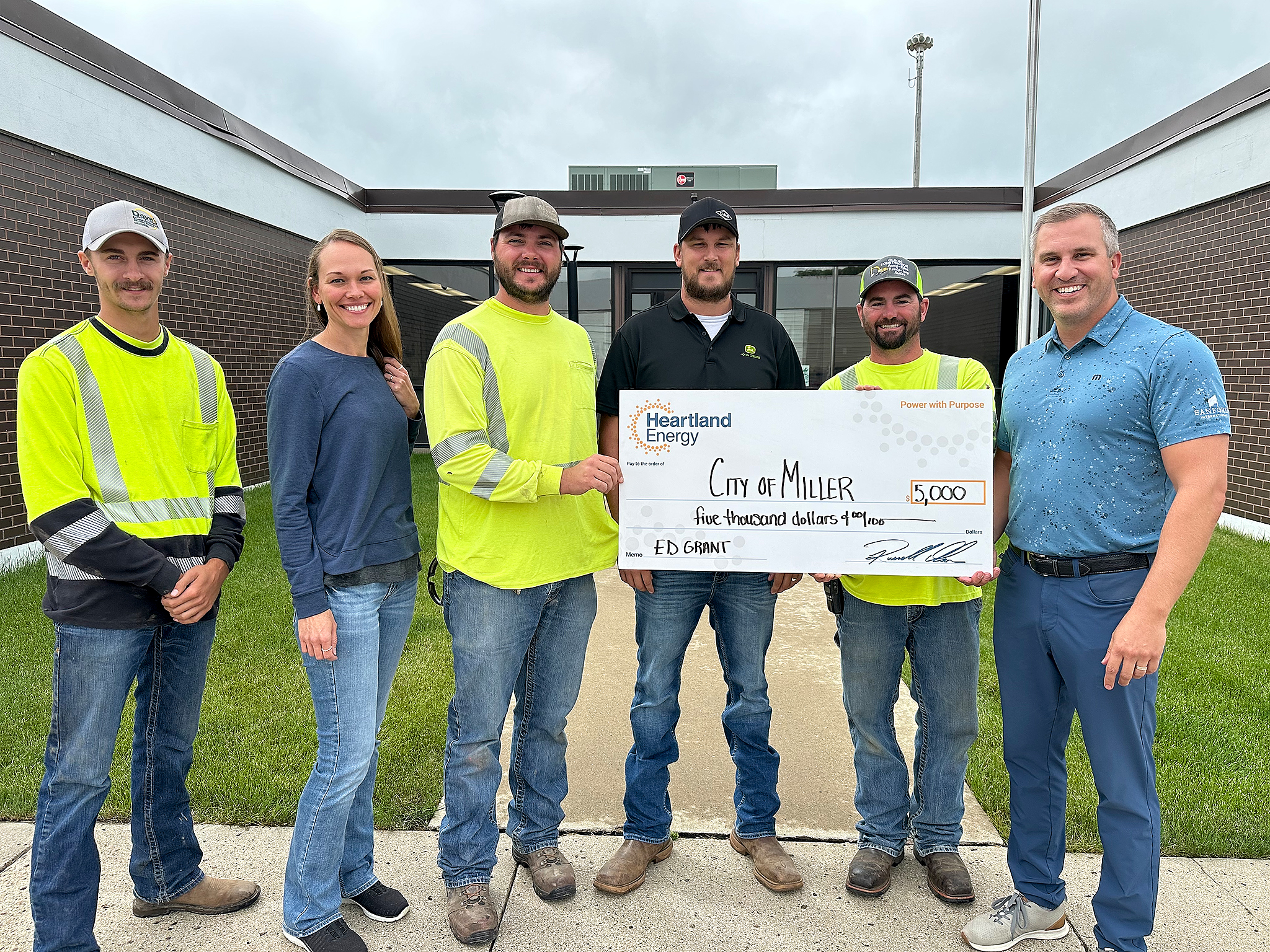Grants help Aurora, Miller plan for future growth
October 7, 2024Heartland Energy is helping two customers invest in the future of their communities. The cities of Aurora and Miller, South Dakota each earned $5,000 economic development grants to assist with key projects aimed at enhancing local infrastructure and driving economic growth.
Heartland’s grant program provides support to projects that promote prosperity, create business opportunities, and enhance the quality of life for residents. The funding is often instrumental in bringing such projects to light.
Aurora is seeking to spark commercial growth with a new economic development association while Miller is developing a Capital Improvement Plan. By supporting these initiatives, Heartland is helping ensure stronger, more resilient local economies, improved public services, and a brighter future for residents.

Aurora prepares for new economic development association
The City of Aurora is laying the groundwork to create a dedicated economic development association (EDA) aimed at promoting business growth and revitalizing the local economy.
Aurora has seen significant residential growth in recent years, resulting in a need for business development. While there is interest in new business opportunities, the city lacks a dedicated organization to facilitate such growth. The city is working with consultants to create an EDA that will focus on fostering business development, creating more retail opportunities, and encouraging local economic growth. The city has already implemented a second penny tax to reinvest in infrastructure.
“With the surge of housing Aurora has seen, there’s a clear need for more businesses to serve the growing number of residents,” said Heartland Energy Director of Economic Development Casey Crabtree. “We are excited to support the city’s efforts to build a stronger business community that will benefit residents and keep resources local.”
The EDA is expected to drive measurable growth in business development and sales tax revenue, ensuring that Aurora continues to thrive as both a residential and commercial hub.

Miller develops Capital Improvement Plan
The city of Miller is taking significant steps to properly plan for future growth and provide better public services to the community. The first step is implementing a Capital Improvement Plan (CIP), a community planning and fiscal management tool used to coordinate the location, timing and financing of capital improvements over a multi-year period.
Miller was one of 16 communities chosen by the South Dakota Governor’s Office of Economic Development (GOED) for the Infrastructure First project, which focuses on statewide economic development planning. GOED was awarded a $1 million grant from the Economic Development Administration to help fund the program. GOED selected ISG to work with selected communities to implement their plans.
The new CIP will help the city properly plan for large capital expenditures. They will prioritize critical projects such as improvements to public buildings and facilities, including city hall and the fire hall, electric and water shops, and the local pool. It will also plan for future investments in public infrastructure, such as replacing outdated power distribution systems.
Crucially, the CIP will serve as a living document, reviewed annually and updated continuously to ensure Miller is well-prepared to tackle future challenges and deliver enhanced public services to its residents.
Because the Infrastructure First project requires matching funds from the selected communities, the Heartland Energy grant will support their efforts.
“Investing in infrastructure is key to the long-term success of Miller,” said Crabtree. “Communities must first understand their current infrastructure constraints then properly plan for future improvements. We are excited to be part of this project.”
